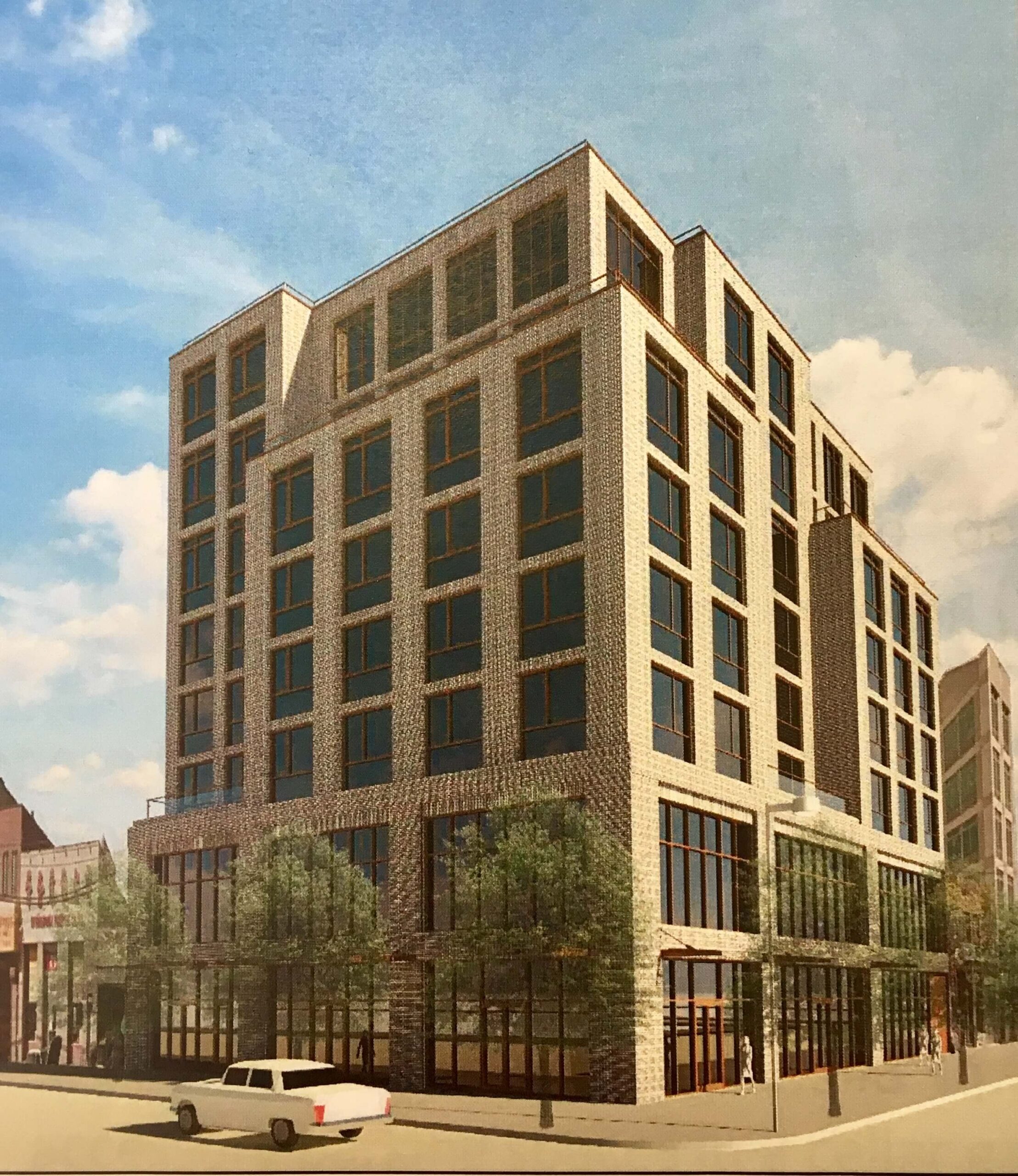New Year, New Development Mooted for Eighth Avenue

The already teeming Eighth Avenue corridor on the border of Sunset Park and Dyker Heights could see even more new development, as one more player has entered the area with plans for a multi-story mixed-use commercial/residential building.
Getty Realty Trust, which owns the property at 6418 Eighth Avenue — a lot at the corner of 65th Street that is the site of a long-standing gas station — is looking to construct an eight-story development with 48 apartments, and with commercial space on the first and second floors.
To do so, it needs a pair of zoning changes, one to change the use of the property from manufacturing to commercial/residential and another — which is mandated by the city in such cases — to require any construction on what would be newly-rezoned property to include a certain percentage of affordable housing.